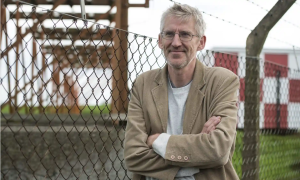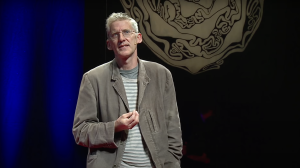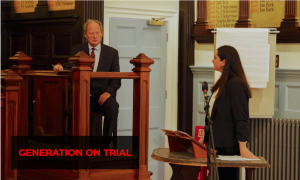
credit: Facundo Arrizabalaga/EPA/Shutterstock (via Guardian)
We are thrilled to announce the appointment of Clive Stafford Smith OBE as a Visiting Professor in Law at Goldsmiths.
Clive has earned global admiration for his anti-death penalty work in the US. He is the founder of leading NGO Reprieve, who fight for people on death row, people held without charge or trial, people tortured and people targeted by illegal and lethal drone attacks. Through his pioneering legal practice and activist work, Clive has always strived to empower young people to protect human rights. His death penalty project in the US has over the years enabled hundreds of students to do life-saving, transformational work. His work defending Guantanamo detainees has been equally revolutionary. The Guardian describes his legendary status by highlighting his ‘intransigent, crusading spirit’.
 “Clive instantly fascinates with the sharpness of thought and depth of knowledge he very naturally has on display when in conversation with you, and you are totally mesmerised by the strength and intrinsic nature of his conviction in doing justice for all; justice for the most vulnerable and alienated in our society, above all”, said our Head of Department, Prof Dimitrios Giannoulopoulos. “And that is before you even begin to consider what he has achieved already, through his fearless human rights practice, his pioneering initiatives, and through the work of the students, and young people, that he’s been so successful in mobilising around the right to fair trial, faced with the often inherent barbarity of the criminal justice system”, he added, before concluding:
“Clive instantly fascinates with the sharpness of thought and depth of knowledge he very naturally has on display when in conversation with you, and you are totally mesmerised by the strength and intrinsic nature of his conviction in doing justice for all; justice for the most vulnerable and alienated in our society, above all”, said our Head of Department, Prof Dimitrios Giannoulopoulos. “And that is before you even begin to consider what he has achieved already, through his fearless human rights practice, his pioneering initiatives, and through the work of the students, and young people, that he’s been so successful in mobilising around the right to fair trial, faced with the often inherent barbarity of the criminal justice system”, he added, before concluding:
“I cannot wait to introduce Clive to our students. Our principles and values as a department and community could not be more perfectly aligned. We’ll take huge inspiration from his work, and beam back that embedded passion for justice, equality and human rights, and our aspiration to set in motion legal education as a force for good and change”.
 Clive’s latest initiative 3DC focusses on the objective of “empowering the next generation”, including through historic (and more modern) fictional trials (the ‘generation on trial’ initiative). 3DC “works to inspire [their] ‘apprentices’ to find and establish a career in which their talents meet their passion to right the damage done by [Clive’s] generation”.
Clive’s latest initiative 3DC focusses on the objective of “empowering the next generation”, including through historic (and more modern) fictional trials (the ‘generation on trial’ initiative). 3DC “works to inspire [their] ‘apprentices’ to find and establish a career in which their talents meet their passion to right the damage done by [Clive’s] generation”.
After graduating from Columbia Law School in New York, Clive spent nine years as a lawyer with the Southern Center for Human Rights, working on death penalty cases and other civil rights issues. In 1993, Clive moved to New Orleans and set up the Louisiana Crisis Assistance Center, a non-profit law office specialising in the representation of poor people facing capital charges.
In total, Clive has represented over 300 prisoners facing the death penalty in the southern United States. While he only took on the cases of those who could not afford a lawyer – he has never been paid by a client – and always the most despised, he prevented the death penalty in all but six cases (a 98% “victory” rate).
Few lawyers ever take a case to the US Supreme Court – Clive has taken five, and every one of these people prevailed.
In 2001, when the US military base at Guantánamo Bay was pressed into service to hold suspected terrorists beyond the reach of the courts, Clive joined two other lawyers to sue for access to the detainees. He believed that the camp was an affront to democracy and the rule of law: his ultimate goal was to close Guantánamo and restore to the US and its allies their legitimacy as human rights champions. During those early days, Clive received death threats and was labelled a “traitor” for defending “terrorists”. It was three years before the Supreme Court finally allowed lawyers into the prison camp.
Meanwhile, Clive travelled the length and breadth of the Middle East to find the families of “disappeared” prisoners. He was undeterred by the interventions of unhappy US allies – including the Jordanian secret police, who took him into custody in 2004.
To date, Clive has helped secure the release of 69 prisoners from Guantánamo Bay (including every British prisoner), and still acts for 15 more. This is a phenomenal number – far more than any other lawyer or law firm – and demonstrates Clive’s peerless ability in his field. More recently, Clive has turned a strategic eye to other secret detention sites, including Bagram Airbase in Afghanistan and the British island of Diego Garcia.
Clive has received many awards and honours. In 2000 he was awarded the OBE for humanitarian services. He was a Soros Senior Fellow, Rowntree Visionary (2005) and Echoing Green Fellow (2005). In addition, he received a Lifetime Achievement Award from The Lawyer Magazine (2003) and The Law Society, the Benjamin Smith Award from the ACLU of Louisiana (2003), the Gandhi Peace Award (2004), a Lannan Foundation Cultural Freedom Award (2008), the International Freedom of the Press Award (2009), Unione Nazionale Cronisti Italiani (for the defence of Sami al Hajj), the International Bar Association’s Human Rights Award (2010), the Contrarian Prize (2014) and the Amnesty International Chair (2014).
Alongside these, Clive was ranked 6th on the 2009 list of Britain’s Most Powerful Lawyers (The Times, July 2009) and ranked 3rd on the 2009 “High Profile” British lawyer list (The Lawyer, September 2009).